During lockdown, most of us spent the best part of seven weeks stuck at home. Some of us loved the change in tempo alert level four restrictions afforded, using the time to improve our lives and relationships. Others found that seven weeks of sitting on the couch simply highlighted all the imperfections in their homes.
With the whole family at home all the time and at the same time, many people realised that their homes just weren’t big enough. Professionals who worked through lockdown also realised the value of a dedicated office space that wasn’t just one end of the dining table. Now with international travel off the cards, homeowners are spending more time and money on home improvements instead.
- Read more: Sam Wallace v the interiors therapist
A focus of post-lockdown home improvements is a home office space. While the doors of most businesses are open again, many Kiwis have relished a flexible way of working. Perching your laptop on your lap while sitting on the couch doesn’t work for everyone, though – least of all, your back.
Start your property search
“In an ideal world, you’ll have a room where you can work undisturbed with a supportive, ergonomic desk and chair,” says Suzanne Roynon, the British author of Welcome Home: How Stuff Makes or Breaks Your Relationship. “If you have the luxury of a home with room to spare and you create a welcoming private office environment, you’ll certainly benefit long term if working from home becomes a regular part of daily life.”

British interiors therapist Suzanne Roynon: “Think really carefully about what you’re keeping in your home.” Photo / Supplied
Of course, many of us don’t have a spare room – or even a spare nook. Roynon suggests reviewing every space in the house as office potential. This might mean setting up a table in the bedroom. You might have an extra-wide hallway or landing between floors where you could add a table or desk. “I’ve even seen a large walk-in closet reconfigured to provide a successful working from home space … although you’d have to empty it first!”
Roynon says that post-lockdown home improvements shouldn’t revolve around work.
“I always start with asking who will be using the space most. Once you have a realistic understanding of who needs to do what and where, it’s possible to be realistic about the available space and what you can do about it,” she says.
Home improvements don’t always equal a full renovation or reconfiguration of a room, though. Post-lockdown, Roynon says that some people have realised the concept of home hasn’t been satisfying their needs so now’s the perfect opportunity to create a haven that they actually want to come home to.
“Residents are looking for ways to change their home so it genuinely feels good to be there. If you’re happy at home, happiness ripples into other parts of your life. If you aren’t happy, the opposite happens. It definitely makes sense to feel good about your home.”
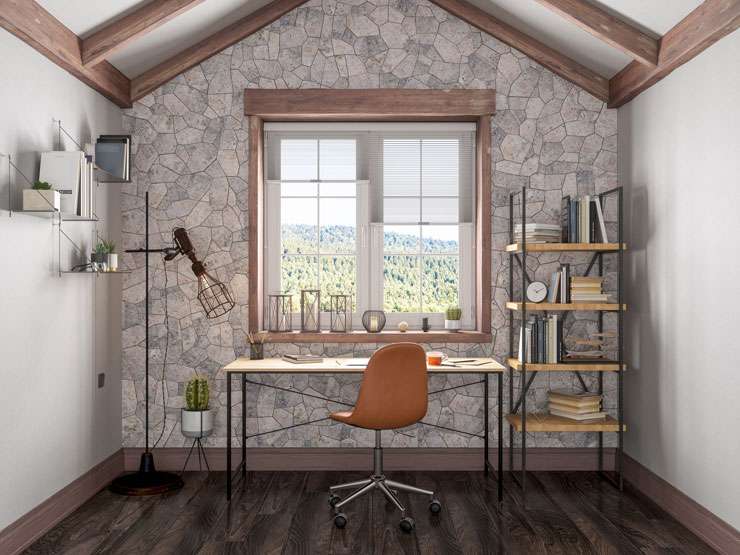
The perfect home office space. Photo / Getty Images
Instead of busting down a wall or forking out hundreds of thousands of dollars for an extension, looking at the little things could be the answer to creating a happy home.
“Never underestimate the transformative impact of a clear counter and great organisation. Declutter everything you don’t use, need or love and get the space sparkling clean. Do cosmetic repairs. Fix dripping taps and leaky, grimy shower cubicles. Tidy the backyard, repair damaged fences and refresh exterior woodwork. Take pride in your home and fall in love with it all over again.”
A fresh lick of paint is an inexpensive way to completely transform a space, and Roynon suggests using light, inspiring tones; but not grey – even if it is fashionable.
“What looks fabulous in a coastal mansion is just plain dreary in a small single storey on a quiet street. I’ve written a lot about the bleak and depressing impact of grey rooms on people who had previously lived their lives to the full. Fortunately, many are repainting or toning down the 50 shades that have been so dominant over the past few years.”
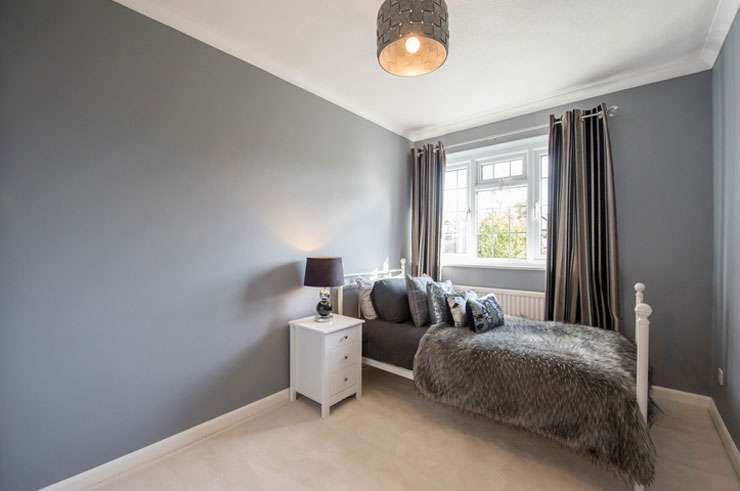
Grey colours can drain a bedroom of life. Photo / Getty Image
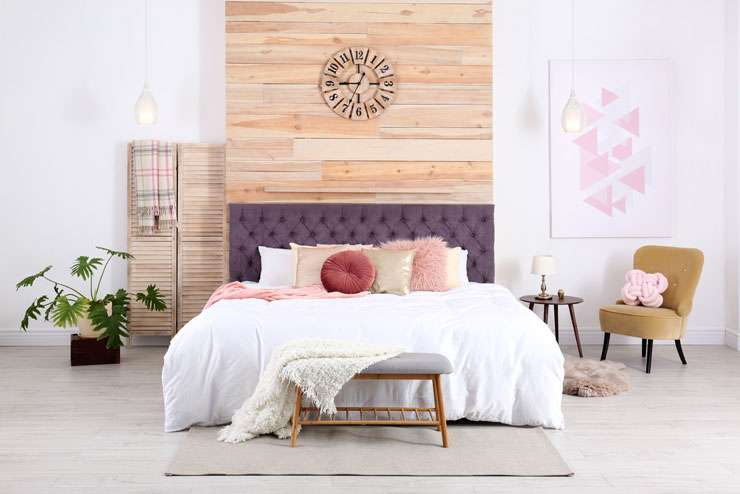
Light colours can reinvigorate a room. Photo / Shutterstock
The impact of clutter and organisation can impact the overall feel of a home. Roynon says that overhauling your stuff creates room for positive energy.
“Think really carefully about what you’re keeping in your home. Aside from the obvious detrimental impact of clutter, ‘dead items’ like dried flowers and the ashes of deceased pets and loved ones are best returned to the earth. They create stagnation and amplify the feeling of loss, which doesn’t generate a healthy, happy place to live.”
Organisation is key too, particularly around how you use your home.
“Humans are creatures of habit and just because your mother kept mugs by the sink, does that really make sense for you when the kettle is on the far side of the room?”
Post-lockdown many of us want to be at home more, and want to create a space where we feel happy and comfortable.
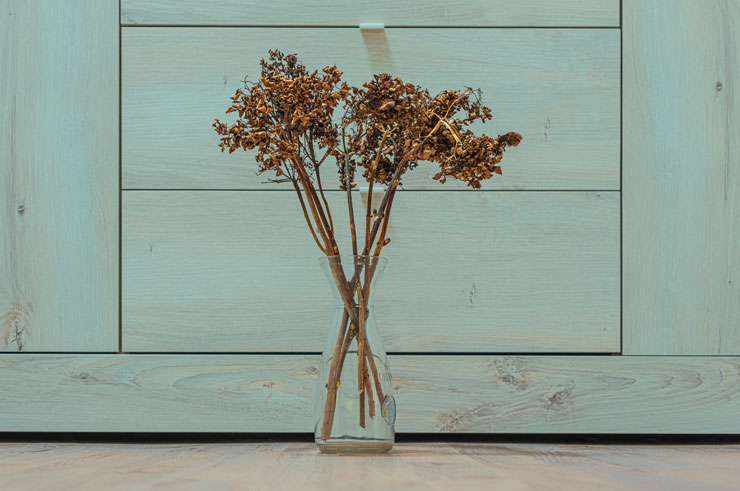
No-nos: Dried flowers, above, and the ashes of deceased pets and loved ones, below. Photos / Getty Images
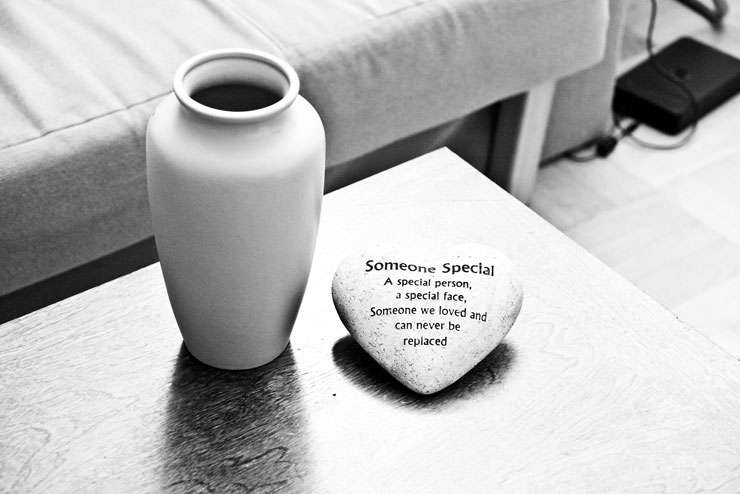
“Lockdown has given people the headspace to really think about how they use their home in order to make it work for their family and lifestyle. With the uncertainty of our post-COVID world, it makes sense to stay put, get savvy and make it happen.”
- Suzanne Roynon’s book Welcome Home: How Stuff Makes or Breaks Your Relationship is available to buy at Amazon.










